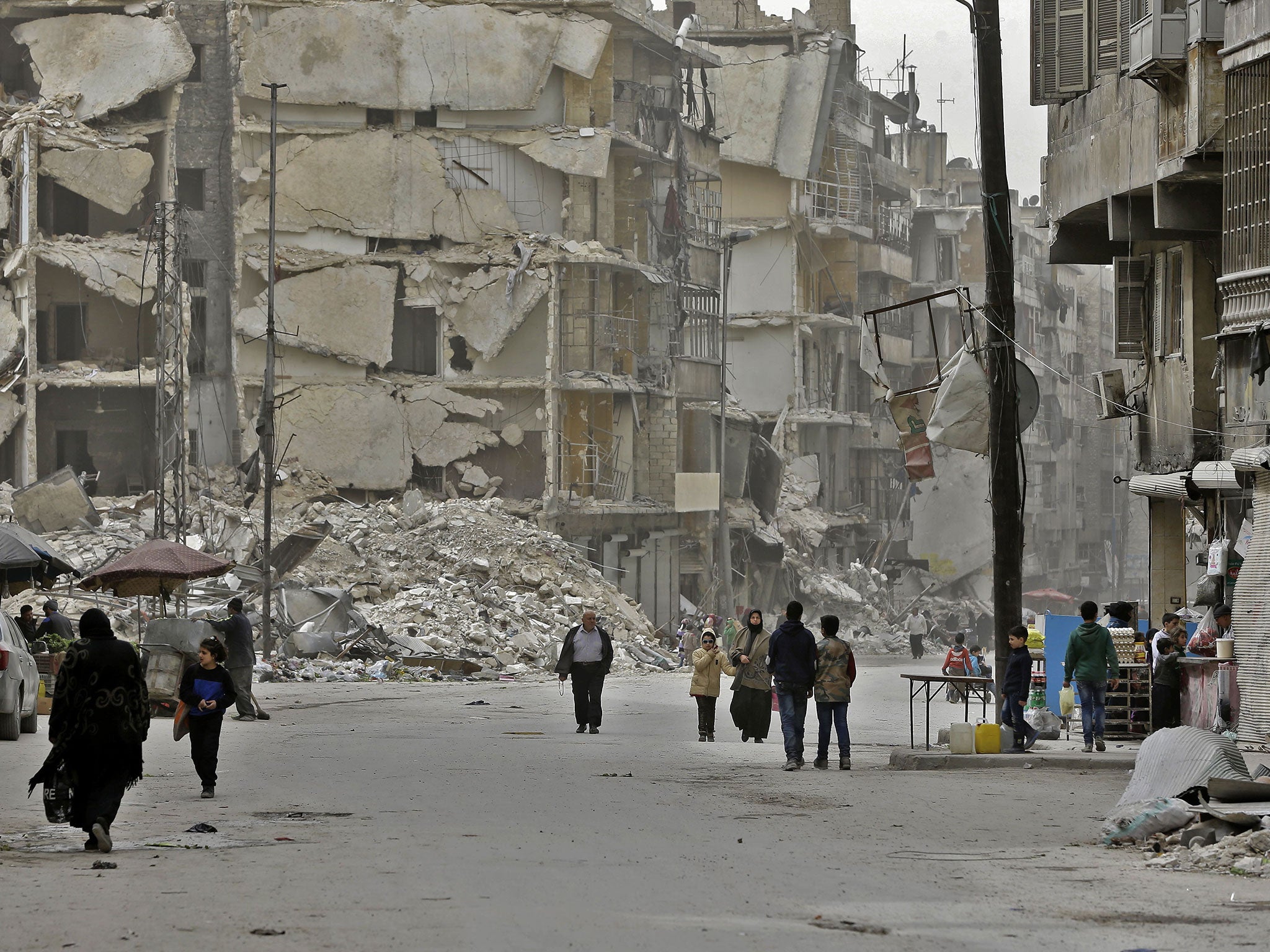Thousands of Syrian refugees returning to unsafe country amid lack of international support
UN warns that ‘conditions for refugees to return safely are not in place’

Tens of thousands of Syrian refugees have returned to the country so far this year amid fresh hope for lasting ceasefires in some cities.
The UN Refugee Agency (UNHCR) said it was seeing a “notable trend of spontaneous returns” from outside and inside the country.
Around 31,000 refugees returned from neighbouring countries in the first six months of 2017, while more than 440,000 internally displaced people went back to their homes – a combined total of almost half a million people.
Andrej Mahecic, a spokesperson for the UNHCR, said the main destinations were Aleppo, Hama, Homs and Damascus – all of which are partly or wholly controlled by the Syrian government after devastating battles against rebel groups.
Mr Mahecic said Syrians were seeking out family members, checking on property, and “in some cases responding to a real or perceived improvement in security conditions in parts of the country”.
But he warned that although there is fresh hope over recent peace talks in Astana and Geneva, the “UNHCR believes conditions for refugees to return in safety and dignity are not yet in place in Syria”.
“The sustainability of security improvements in many return areas is uncertain, and there remain significant risks of protection thresholds for voluntary, safe and dignified returns not being met in parts of the country,” he added.
“Access to the displaced population inside Syria remains a key challenge, with aid convoys still unable to access regularly even the recently newly accessible areas.”
Limited progress has been made in the UN-backed peace talks in Geneva, while the West is wary of ceasefires brokered by Bashar al-Assad’s allies Russia and Iran, and rebel-supporting Turkey in Astana.
Isis and al-Qaeda linked alliance Tahrir al-Sham are barred from all talks and continue to hold swathes of territory.
The UNHCR is scaling up its operations inside Syria for the new arrivals, providing “protection services” and shelter and improving damaged infrastructure and basic services.
It warned that mass returns will not be sustainable without employment opportunities, adequate food and water, health care and education – all of which have been severely damaged by the six-year civil war, seeing the illegal targeting of infrastructure and widespread destruction of hospitals and schools.
“At this stage and while UNHCR will be investing to help, with other partners to improve conditions in accessible areas inside Syria, refugee returns from host countries can neither be promoted nor facilitated by UNHCR,” Mr Mahecic said.
He emphasised that access to asylum for Syrians and allowing them to stay in host countries remained “critical”, reiterating an appeal for $304m (£230m) in funding for displaced people.
Kevin Kennedy, the UN regional humanitarian coordinator for Syria, said almost 14 million of the 18 million people currently living in the country in need of some form of humanitarian assistance.
Of those, 4.5 million are trapped in besieged or hard to reach areas “in desperate need” of aid, which is being blocked by both the Syrian government and rebel groups.
Aleppo before the Syrian Civil War
Show all 12Over one third of Syrians are displaced within the country, while about 5 million more have fled, mainly to Turkey, Jordan and Lebanon.
Since 2015, at least 260,000 refugees have spontaneously returned to Syria, primarily from neighbouring Turkey.
European countries including Germany, Austria and Norway have been offering financial incentives for asylum seekers to voluntarily return to their home nations as borders have hardened throughout the EU.
The vast majority of Syrians arrived on treacherous boat crossings to Greek islands but arrivals have slowed to a trickle since the controversial EU-Turkey deal was imposed in March last year, seeing anyone arriving over the Aegean Sea detained under threat of deportation.
The main sea route to Europe became the Central Mediterranean – now the deadliest sea passage in the world – claiming more than 2,000 lives so far this year.
Around 92,000 migrants have arrived on European shores since January – 83,600 to Italy and 9,000 to Greece – mostly from sub-Saharan African nations, Bangladesh and Morocco.
Syrians, who once made up the largest group of asylum seekers making the journey, account for only 8 per cent of those arriving in 2017.
Subscribe to Independent Premium to bookmark this article
Want to bookmark your favourite articles and stories to read or reference later? Start your Independent Premium subscription today.

Join our commenting forum
Join thought-provoking conversations, follow other Independent readers and see their replies